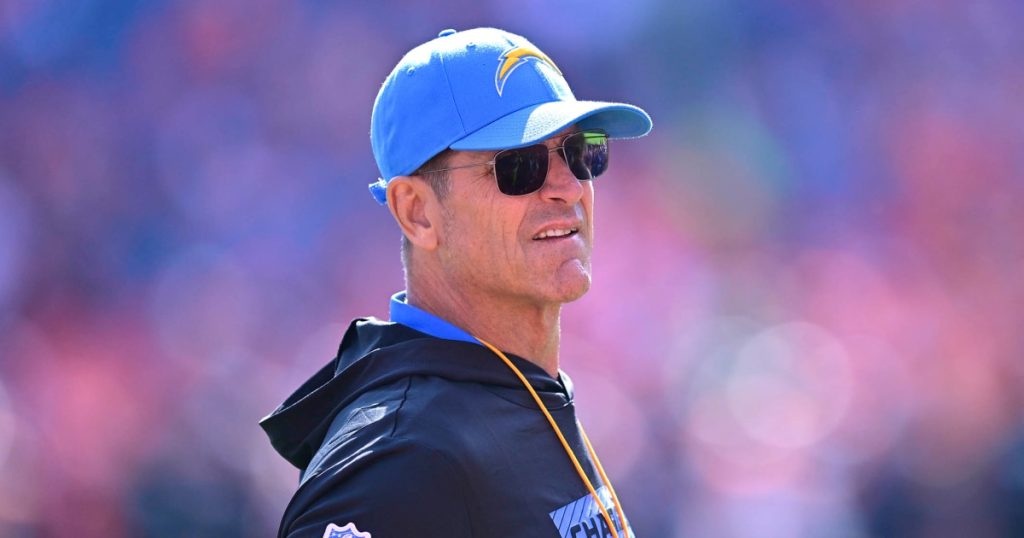Los Angeles Chargers head coach Jim Harbaugh experienced an “atrial flutter” during a game against the Denver Broncos, which caused his heartbeat to go out of rhythm. Harbaugh, 60, left the sidelines and went to the medical tent in the first quarter. He returned to coaching later in the first quarter after being treated by the Chargers’ medical staff. He explained in a postgame press conference that he has dealt with this heart arrhythmia in the past and that it had returned to normal rhythm after receiving medical attention. Harbaugh said he could tell there were irregular beats in his heart during the game, prompting him to seek treatment.
Harbaugh has a history of heart issues, having undergone ablation procedures in 1999 and 2012 to address his arrhythmia. He joked that after experiencing arrhythmias during the 49ers game in 2012 and the Chargers game, he is now “2-0 with arrhythmias.” The procedure involves using radiofrequency energy to destroy heart tissue causing irregular heartbeats and restoring the heart’s natural rhythm. Harbaugh mentioned that he started feeling symptoms the night before the game and during pregame warmups, similar to his previous experiences with arrhythmia. He anticipated that he would need another ablation procedure soon, given his history.
Jim Harbaugh’s brother, Baltimore Ravens head coach John Harbaugh, abruptly left his postgame press conference after being informed of Jim’s health issue during the Chargers game. John, who had just finished a game against the Washington Commanders, made a call to check on his brother upon learning about the situation. The Harbaugh brothers have a close relationship and are both longtime football coaches. They famously faced each other in Super Bowl XLVII in 2013, with John’s Ravens emerging victorious over Jim’s 49ers in a thrilling matchup. The sudden departure from the press conference underscored the concern for Jim’s well-being and the strong bond between the brothers.
During the game, Jim Harbaugh received an intravenous fluid and an EKG test from the Chargers’ athletic training staff to monitor his heart rhythm. He emphasized the importance of trusting the doctors in situations like this and following their advice. Harbaugh expressed gratitude for the medical attention he received and felt confident in returning to coach the remainder of the game once his heart had returned to a normal rhythm. Atrial flutter can cause the heart to beat too slowly, too quickly, or erratically, resulting in a “fluttering” sensation that Harbaugh described experiencing during the game.
Harbaugh’s experience with arrhythmia highlights the importance of managing heart health and seeking prompt medical attention when symptoms arise. His openness about his health issues and the procedures he has undergone serve as a reminder of the prevalence of heart conditions and the need for proper care and monitoring. Despite the interruption in the game and concerns over his well-being, Harbaugh’s ability to continue coaching after receiving medical treatment demonstrates his resilience and dedication to his team. The support from his brother and the football community underscores the importance of family and camaraderie in times of adversity.
In conclusion, Jim Harbaugh’s scare during the Chargers game sheds light on the risks associated with heart arrhythmias and the importance of prioritizing heart health. His history of ablation procedures and experiences with irregular heartbeats underscore the need for vigilance and proactive care. The incident also underscored the strong bond between the Harbaugh brothers and the support system within the football community. Harbaugh’s return to coaching after receiving medical attention reflects his determination and commitment to his team. Overall, the episode serves as a reminder of the fragility of health and the resilience needed to overcome challenges, both on and off the field.















